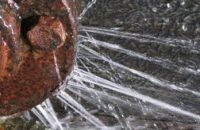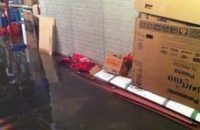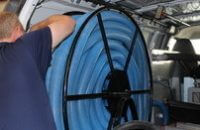How To Handle A Flooded Basement
If you have ever walked down into the basement to get your laundry out of the dryer and found yourself standing in a foot of water, then you understand the headache that is a flooded basement.
Despite the overwhelming nature of such an incident, it is important to stay calm. Whether you decide to remove the water yourself or you call professionals to come deal with the issue, acting fast is key to a successful recovery.
Stagnant floodwater can create a plethora of problems, including water damage and mold growth, which is why it is necessary to start the extraction process right away. Understanding the various ways water can make its way into your basement can help you prevent future flooding incidents, saving yourself both time and money.
The Different Ways Your Basement May Flood
When a pipe bursts, depending on how long it takes to discover the incident. it can cause hundreds of gallons to flood your basement. A pipe burst usually occurs in the winter time, after your pipes have frozen and the water inside have created enough pressure to fracture the metal.
Faulty gutters and downspouts can also creating flooding in your basement. If rainwater is not able to properly runoff into the gutters and drain down the downspout, then it may flow back into the home’s foundation and seep into the basement through any cracks.
Water may also seep into any cracks in your home’s foundation if the water table around your home is too high. When the ground becomes oversaturated with moisture than the water has nowhere else to go and will make its way into the basement.
Even everyday appliances can cause flooding. Your washing machine can easily overflow when you are not present, leaving you to discover the flood when you go down to dry the load. A water heater can also burst when it is not maintained properly, allowing a significant amount of water into the underground space.
Recovering After A Flooding Incident
The first thing you should do when you discover floodwater in your basement is to immediately shut off the main water supply valve to your home. If the water has intruded the home from a ruptured hose, pipe burst or any other inside source, then this will stop the water flow right away.
The next step is to get the water out of the basement. The longer you postpone the water extraction process, the more damage the moisture can due. From water damage to mold infestations, water has the power to influence your home in a major way.
If you do not have the equipment to remove gallons upon gallons of water on your own, then it may be necessary to contact a professional water extraction company. These technicians will use sump pumps and wet vacs ( among other devices) to completely clear the area of water in the shortest amount of time possible.
Once all the water has been removed from the area then you can begin investigating what caused the flood in the first place and making the necessary repairs.






